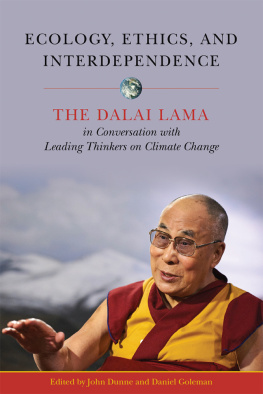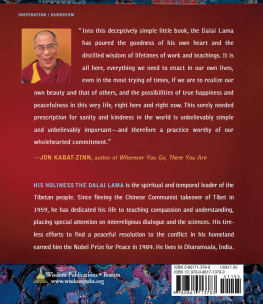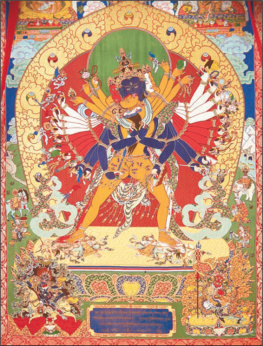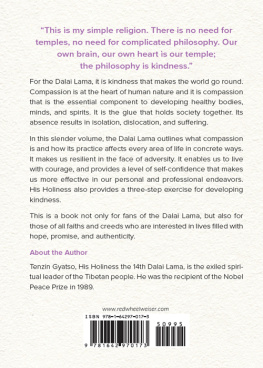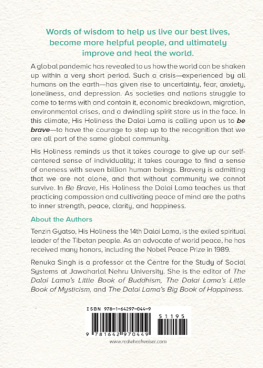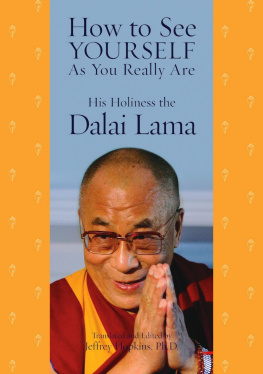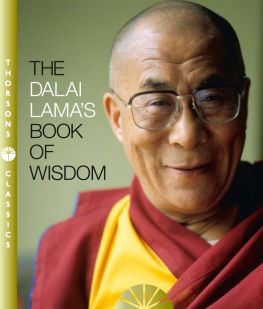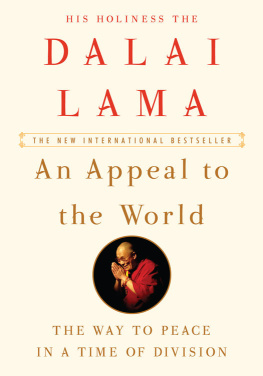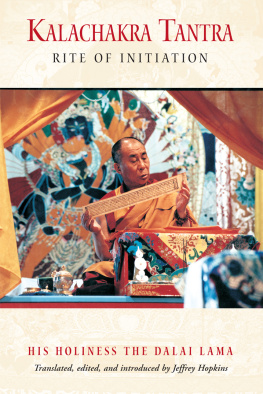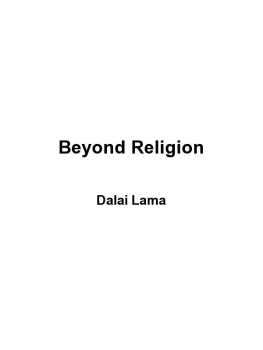
Wisdom Publications
199 Elm Street
Somerville, MA 02144 USA
wisdompubs.org
2018 The Mind & Life Institute
All rights reserved.
No part of this book may be reproduced in any form or by any means, electronic or mechanical, including photography, recording, or by any information storage and retrieval system or technologies now known or later developed, without permission in writing from the publisher.
Library of Congress Cataloging-in-Publication Data
Names: Bstan-dzin-rgya-mtsho, Dalai Lama XIV, 1935 | Dunne, John Anthony, 1986 editor. | Goleman, Daniel, editor.
Title: Ecology, ethics, and interdependence : the Dalai Lama in conversation with leading thinkers on climate change / John Dunne and Daniel Goleman, editors.
Description: Somerville, MA, USA : Wisdom Publications, [2018] | Includes bibliographical references. |
Identifiers: LCCN 2017059972 (print) | LCCN 2018029169 (ebook) | ISBN 9781614295143 (e-book) | ISBN 9781614294948 (pbk.: alk. paper) | ISBN 9781614295143 (ebook)
Subjects: LCSH: Environmental ethics. | Climatic changes Moral and ethical aspects. | Environmentalism Religious aspects Buddhism.
Classification: LCC GE42 (ebook) | LCC GE42 .B84 2018 (print) | DDC 179/.1 dc23
LC record available at https://lccn.loc.gov/2017059972
ISBN 9781-614294948 ebook ISBN 9781-614295143
22 21 20 19 18 5 4 3 2 1
Cover photo by Olivier Adam. Cover design by Jim Zaccaria.
Diligent efforts were made in every case to obtain rights from copyright holders. In a few instances, the efforts were unsuccessful. The author and the publisher are grateful for the use of this excerpted material.
Publishers Acknowledgment
The publisher gratefully acknowledges the generous contribution of the Hershey Family Foundation toward the publication of this book.
Introduction
John Dunne, University of Wisconsin
When the present Dalai Lama was young, Tibet teemed with wildlife. He has written fondly of seeing wild yaks and herds of rugged kiang (a wild donkey) roaming the vast plains of his homeland, and even in the capital of Lhasa he had many opportunities to enjoy wildlife, including the striking sight of wild cranes nesting behind his summer palace, the Norbulingka. Other travelers in Tibet from the early twentieth century have likewise recalled this natural abundance, and some even report catching glimpses of rare species, such as the unique snow leopard, that lived in the hills and higher altitudes of the Tibetan Plateau. But by the late twentieth century, all this had changed. The great Tibetan plains no longer hosted large herds of kiang or wild yak, and the snow leopard itself had become severely endangered. Along with these and many other abrupt changes, the ecosystem of Tibet, as with the rest of our planet, was already showing the jarring impact of a new era in natural history: the Anthropocene age, or the Human age, so called because human activity plays such a central role in the ecological changes we are witnessing.
Now, in the early twenty-first century, the effects of the Anthropocene age have become even more obvious throughout the globe. Average global temperatures are on the rise, with the top ten hottest years in history all occurring since 1998, and the trend seems likely to continue. Warmer temperatures mean that ice is melting at both poles, and the seas are rising, already threatening some island nations and low-lying coastlines. The increased atmospheric energy from higher average temperatures is shifting weather patterns and producing more intense storms, longer droughts, and other effects such as the spread of tropical diseases. And climate change from global warming is only one of the many impacts of the Anthropocene age. Pollutants in the air pose a significant risk to health, and in some cities the air quality reaches the point that schools must be closed to protect children from the ill effects of the dense urban smog. Our water and soil are likewise laced with pollutants, with consequent disruptions to the food chain and to human health. Deforestation has led to huge habitat losses and a high rate of extinction, involving the loss of hundreds of species in recent years. We face, in short, an ecological crisis of such profound proportions that it is easy to feel overwhelmed.
Despite our dire ecological circumstances, however, there is still some good news: just as human activity has played a significant role in producing this crisis, so too can we humans work actively to lessen or even reverse the effects of what we are witnessing. With that hopeful view in mind, His Holiness the Dalai Lama requested that Mind and Life Institute (MLI) organize a weeklong dialogue with top-level scientists and scholars so as to inquire into our ecological situation and clarify ways that we can move forward constructively. In conversation with experts in various disciplines, we at MLI soon saw that this historic meeting must approach the problem from multiple perspectives. A key theme emerged: interdependence.
The very notion of an ecosystem presupposes a deep level of interconnection. Through complex interactions, the living beings and elements that constitute an ecosystem are tightly linked relatively small changes in one part of the system can have profound implications for all else in the system. When those changes come about through conscious, deliberate actions, an additional implication emerges: in ecological terms, our actions involve a clear ethical responsibility. When we make choices about how we live our lives, we are having an impact far beyond our own immediate circumstances. Those impacts can extend not only to the rest of the planet but also to future generations. As we uncovered these and other ethical implications of ecological interconnectivity, we realized that our dialogue would require a deep inquiry into ethics from both philosophical and spiritual perspectives.
Finally, our dialogue needed more than an understanding of our ecological crisis in both scientific and ethical terms; we also needed to explore the question of concrete action. Many of us understand a great deal about the ecological dangers that we face, and we can also appreciate the ethical responsibility that we bear toward the rest of the world and toward future generations. Yet concrete action may still be hard to come by. Why so? When we asked various experts this question, we learned that there are well-known psychological barriers to action when faced with the peculiar, long-term dangers that arise from the ecological crisis. To learn how to overcome those barriers, our meeting needed to include expertise in the psychology of danger assessment and decision making. The context of action, however, does not just end with the commitment to act. It also requires sound strategies and techniques that can succeed in our complex, globalized communities. To that end, we also needed participants with firsthand experience about what works and what doesnt work to bring about beneficial and lasting change in relation to our environment.
With all these considerations in place, the contours of our meeting became clear. For the best possible dialogue, we needed to find and invite participants with the highest level of expertise in three overall areas: environmental science, ethics, and action. Fortunately, our invitations were readily accepted because our invitees all renowned in their respective fields saw great potential benefit in a weeklong discussion of these issues with the Dalai Lama at his home in Dharamsala, India, where he resides in exile, in 2011. This book is a record of those remarkable conversations.
The conversations were divided into three parts, and so are the chapters in this book. The first chapters focus on presenting scientific evidence related to the impact humankind is having on the planet Earth and the effects of changing environmental conditions on both human beings and the natural world. The next chapters turn to ethical considerations related to environmental issues. And the final chapters discuss how we can enable effective action to address these crucial matters.
Next page
